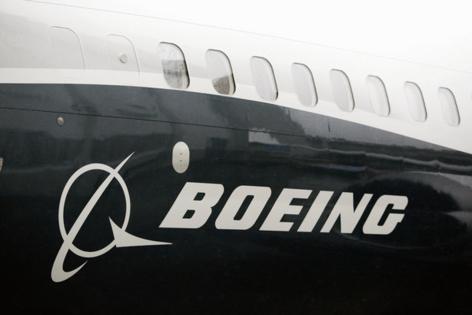California Boeing workers file whistleblower lawsuits alleging retaliation
Published in Business News
Late last year, Boeing employee Craig Garriott says a 4-ton satellite inside an El Segundo, California, plant fell after engineers failed to properly secure a clamp.
No one was injured by the collapse of the $1 billion-plus satellite that happened over a weekend, but it could have been fatal if workers were present, Garriott claims.
The incident highlighted a raft of safety violations that were ignored by management, according to a whistleblower lawsuit that was recently transferred to federal court in Los Angeles.
In the lawsuit, the veteran Boeing employee alleges that his employer retaliated against him for speaking out about problems he saw at Boeing and Millennium Space Systems, a Boeing defense contractor that makes small satellites.
"I will say that this case is not just a case of retaliation," said Leonard Sansanowicz, an attorney representing Garriott.
"The larger issues that we're talking about are public safety, workplace safety and what's being done with taxpayer dollars."
Boeing has denied the allegations in court papers, but declined to comment on the litigation.
The lawsuits come as the Arlington, Va.-based aerospace giant's new chief executive, Kelly Ortberg, grapples with a strike by its machinists union and ongoing controversies over its manufacturing and safety practices — including how it treats employee whistleblowers who have alleged quality control and other problems.
In June, outgoing CEO Dave Calhoun admitted at a Senate hearing that whistleblowers have faced retaliation — saying "I know it happens" — with Boeing promising to take steps to fix the problem.
"This is another black eye," Dan Bubb, a professor of history with a focus on aviation at the University of Nevada, Las Vegas, said of the lawsuits. "The punches just keep landing one after the other."
Boeing acquired Millennium Space Systems in 2018 for an undisclosed amount.
Garriott, 53, a technician who has worked at Boeing since 1997, alleges his problems began in 2017, when a supervisor at other Boeing operations in El Segundo asked him and others to sign off that work on a government contract had been completed, when it had not.
When he refused to do so, he said was derided by another manager for not being a "team player," demoted and denied other work opportunities despite prior positive performance reviews, the lawsuit states.
After taking a leave from Boeing for several years to work for the Cabinet Makers, Millmen and Industrial Carpenters union, he returned to work in 2022 at Boeing and Millennium while also serving as a union steward.
He alleges that he made a series of safety complaints that lead to threats and retaliation against him, including one over thermal testing that was being done on equipment on nights and weekends, despite the danger of fire.
After speaking out, he claims he was verbally abused, physically threatened, accused of creating a hostile work environment and barred from work areas.
Garriott's spouse, Kathy Moonitz, 55, a Boeing quality inspector since 2021, also has sued her employer, alleging in a separate whistleblower lawsuit that she was collateral damage to her husband's efforts to stem "pay to play" nepotism at the company.
She claims that after her husband filed a complaint in 2022 that a Boeing manager purchased a $10-million propellant system from a company owned by a family friend and then hired the owner's child, she was falsely accused of making a bad purchase of welding materials.
Garriott and Moonitz continue to work at the company, said Sansanowicz, who represents both plaintiffs in the lawsuits. Several managers also are defendants in the litigation.
The lawsuits allege the stress of the retaliation has caused the couple to separate several times since their 2021 marriage.
This summer, Boeing successfully moved to have the lawsuits, originally filed in April in Los Angeles County Superior Court, transferred to U.S. District Court, arguing that they involved federal labor issues. Sansanowicz said the company's procedural advantages in federal court include the requirement for a unanimous verdict in the cases. The plaintiffs are seeking to have the cases returned to state court.
In April, Millennium received a U.S. Space Force contract valued at up to $414 million to build eight satellites capable of detecting advanced threats such as hypersonic missiles. The company's CEO, Jason Kim, recently left and a successor has yet to be named.
Millennium is part of Boeing's Defense, Space & Security unit, which saw the departure last month of its CEO, Ted Colbert. That followed challenges that included the ill-fated mission to ferry two astronauts up to the International Space Station on its new Starliner spacecraft.
After launching in June following repeated delays, the capsule returned remotely and uncrewed due to problems with its propulsion system. The mishap was particularly embarrassing since NASA decided to have Elon Musk's Hawthorne rival SpaceX bring the astronauts back to Earth in February.
Boeing is also continuing to suffer fallout from the crashes of two of its 737 Max 8 planes several years ago, and more recently the blowout of a door plug last January on an Alaska Airlines flight to Ontario International Airport in San Bernardino County. Investigators found the plug on the 737 Max 9 aircraft was missing four bolts.
Attorney Tim Loranger, who is representing passengers on the flight who have sued Boeing, said the allegations in the Los Angeles lawsuits are consistent with union testimony at recent National Transportation Safety Board hearings on the door-plug blowout.
"Boeing's culture does not value employees' involvement in safety issues, in issues related to quality assurance and they feel sort of isolated — and that really speaks very loudly to why it is that these problems are happening," he alleged.
©2024 Los Angeles Times. Visit at latimes.com. Distributed by Tribune Content Agency, LLC.












Comments